

UG
Computer Science, Bachelor of Science
Gain a strong foundation in the theory and practice of computer science, exploring areas such as software development, artificial intelligence, computer architecture, and more, to prepare for careers in the industry and further graduate study.
- Home
- Academics
- Majors and Programs of Study
- Computer Science, Bachelor of Science
Advances in computing and technology drive the modern world, meaning that the computing sector has seen some of the fastest job growth in recent years and will continue to do so in the future. The BS in Computer Science program at St John’s University provides students with the problem-solving skills and hands-on practical experience necessary to become innovators and leaders in this fast-changing field. You will explore areas ranging from software engineering, database design, artificial intelligence and machine learning, cryptography, computer science theory, and networking, along with a strong background in math and science, preparing you for industry careers, graduate studies, and research in computer science.
- Degree Type
- BS
- Area of Interest
- Computing & Technology
- Associated Colleges or Schools
- Program Location
- Queens Campus
- Required Credit Hours
- 120
Program Contact
We are here to answer any questions you may have about the Computer Science program and admission process.
Courses
Please click on the accordions below to see the specific course requirements for the BS in Computer Science.
After graduating, you are prepared to establish a career in the field of computing in a variety of professional roles, further your knowledge and skills through graduate study or professional development programs, and contribute to the field of computing and to society as an entrepreneur, innovator, or researcher.
Computer Science
To earn a Bachelor of Science Degree in Computer Science, students must complete 120 credits in major-sequence, elective courses, and core requirements, as outlined below.
Grade Requirements: A minimum grade of C on CUS 1116 and CUS 1126 courses, is required for students to be allowed to continue in the computer science major (including computer science option programs).
Major Area Requirements: 36 Credits
| CUS | 1115 | Computer Programming Fundamentals I | 3 |
| CUS | 1116 | Computer Programming Fundamentals II | 3 |
| CUS | 1126 | Introduction to Data Structures | 3 |
| CUS | 1151 | Advanced Data Structures | 3 |
| CUS | 1156 | Software Design Methods | 3 |
| CUS | 1162 | Computer Architecture | 3 |
| CUS | 1163 | Operating Systems | 3 |
| CUS | 1165 | Database Management Systems | 3 |
| CUS | 1166 | Software Engineering | 3 |
| CUS | 1168 | Theory of Programming Languages | 3 |
| CUS | 1185 | Data Security and Cryptography | 3 |
| NET | 1011 | Networking Fundamentals | 3 |
Additional Area Requirements: 9 Credits
(3 credits from the following Computer Science theory courses)
| CUS | 1186 Theory of Computation | 3 | |
| CUS | 1187 Finite Automata and Formal Languages | 3 | |
| CUS | 1188 Analysis of Algorithms | 3 |
(6 credits from CUS electives)
Any CUS courses above 1126
Common Core Requirements: 39 Credits
| ART | 1000C* | The Creative Process | 3 |
| DNY | 1000C | Discover New York | 3 |
| ENG | 1100C | Literature in a Global Context | 3 |
| FYW | 1000C | First Year Writing | 3 |
| HIS | 1000C | Emergence of a Global Society | 3 |
| LAC | 1000C* | Language and Culture | 3 |
| PHI | 1000C | Philosophy of the Human Person | 3 |
| PHI | 3000C | Metaphysics | 3 |
| PHI | 1020 series | Ethics | 3 |
| SPE | 1000C | Public Speaking for the College Student | 3 |
| THE | 1000C | Perspectives on Christianity- A Catholic Approach | 3 |
| THE | 1040 series | Moral Theology | 3 |
| THE | Elective | Any Theology Elective | 3 |
*OR 6 CREDITS FROM ANY SECOND LANGUAGE
Other Liberal Arts Requirements: 32-34 Credits
(3 credits from the following Economics courses)
| ECO | 1001 | Principles of Economics I | 3 |
| ECO | 1002 | Principles of Economics II | 3
|
(15 credits from Required Math Courses)
| MTH | 1009 | Calculus I | 3 |
| MTH | 1010 | Calculus II | 3 |
| MTH | 1013 | Probability and Statistics I | 3 |
| MTH | 1014 | Probability and Statistics II | 3 |
| MTH | 1022 | Discrete Mathematics | 3 |
(6 credits from the following Mathematics courses)
| MTH | 1011 | Calculus III | 3 |
| MTH | 1012 | Linear Algebra | 3 |
| MTH | 1015 | Numerical Analysis | 3 |
| MTH | 1016 | Software Applications for Mathematics | 3 |
| MTH | 1017 | Mathematical Logic | 3 |
| MTH | 1018 | Differential Equations | 3 |
| MTH | 1019 | Topics in Advanced Calculus | 3 |
(8-10 credits from the following Science courses)
| BIO | 1000 | Biology, I: Introduction to Population Biology Lab | 4 |
| BIO | 2000 | Biology, II: Introduction to Cell and Molecular Biology Lab | 4 |
| CHE | 1210 | General Chemistry I Lab Recitation | 5 |
| CHE | 1220 | General Chemistry II Lab Recitation | 5 |
| PHY | 1610 | College Physics I Lab Recitation | 5 |
| PHY | 1620 | College Physics II Lab Recitation | 5 |
FREE ELECTIVES (6 CREDITS)
AI Minor for non-majors to include:
- CUS 1115 Programming Fundamentals I
- CUS 1116 Programming Fundamentals II
- CUS 1126 Intro to Data Structures
- CUS 1174 Introduction to Artificial Intelligence and
- CUS 1177 Introduction to NLP (Natural Language Processing) or CUS 1179 Machine Learning.
For Computer Science undergraduate students who want to gain Artificial Intelligence credentials, they can complete the AI specialization and earn an AI badge if the following courses are completed:
- CUS 1174 Introduction to Artificial Intelligence
- US 1177 Introduction to NLP(Natural Language Processing)
- CUS 1179 Machine Learning
Students in the Computer Science, Cybersecurity, IT and HCI programs are required to have a laptop computer that meets the following minimum specifications.
- CPU: Intel or AMD CPU (2011 or later) - 64-bit x86/AMD64 CPU with a minimum of 4 cores. Newer Apple computers with Apple Silicon (e.g., M1, M2, M3, or Mx CPUs) cannot run the free virtualization software used in certain courses. Students with these machines will need to purchase additional software.
- OS: Windows 10, or MacOS 13 or above, or up to date Linux (Ubuntu 20.04 or above, Redhat 7.8 or above)
- RAM: 16 GB ((32GB or 64GB preferred))
- Hard drive: 512 Gb, SSD HD preferred, 1TB or greater preferred
- WiFi capability
- Working camera, speakers, microphone, etc
Please Note: Chromebooks and tablets are NOT acceptable as laptops for CUS/Cyber students. Macs with the M1 processor do not support virtualization and, therefore, are also not recommended.
University Core Curriculum
Accreditation
The Bachelor of Science program in Computer Science is accredited by the Computing Accreditation Commission (CAC) of the Accreditation Board for Engineering and Technology (ABET), https://www.abet.org.

Student Outcomes
A student outcome describes what a student should be able to do, know, or demonstrate after completing a course or program of study.
Graduates of the program can:
- Analyze a complex computing problem and apply principles of computing and other relevant disciplines to identify solutions.
- Design, implement, and evaluate a computing-based solution to meet a given set of computing requirements in the context of the program’s discipline.
- Communicate effectively in a variety of professional contexts.
- Recognize professional responsibilities and make informed judgments in computing practice based on legal and ethical principles.
- Function effectively as a member or leader of a team engaged in activities appropriate to the program’s discipline.
- Apply computer science theory and software development fundamentals to produce computing-based solutions.
Internships and Career Outcomes
Upon graduation, you'll be equipped to pursue a diverse range of professional roles within the computing field, and you will be ready to continue your education through graduate studies or professional development, and make significant contributions as an entrepreneur, innovator, or researcher. Many computer science graduates enter software development in industry sectors ranging from finance and banking, social media platforms, gaming, media, the auto industry, airlines, and healthcare. Computer science graduates also go into fields such as artificial intelligence and machine learning, software engineering, data science, robotics, computer graphics, database design, and many other areas that involve creating new systems and technologies.
Internships are an important way for students to gain career-specific skills, get a foot in the door in companies, and explore possible careers. Click here to learn more about internships in computer science.
Extracurricular and Experiential Learning
- Enhance your academic and professional edge by joining the St. John’s Association for Computing Machinery (ACM) student chapter, led by Joan E. DeBello, EdD, Professor. Members engage in cultural and social activities, including training sessions and industry nights, and actively participate in national coding competitions.
- To learn more and view our events, please visit our SJU ACM Student Chapter page.
- You may qualify for the Collins College of Professional Studies Honor Society, which recognizes undergraduates who demonstrate academic excellence and active involvement in campus or community activities. For more details, please contact Joan E. DeBello, EdD, Associate Professor, at [email protected] or 718-990-2032.
- Exciting AI Program Opportunity! Break Through Tech is now accepting applications for the 2025-26 AI Program, which will begin in May 2025! The AI Program is a free, virtual, one-year extracurricular experience that equips you with the skills needed to secure a job in the fastest-growing areas of tech: data science, artificial intelligence (AI), and machine learning (ML). Click here to learn more and to apply.
Fast-Track Your Master's
Through our Fast-Track programs, eligible undergraduates can take 12–15 graduate credits—depending on their major—that count toward both their bachelor’s and master’s degrees. With advisor approval and strong academic standing, students can transition seamlessly into their graduate program after completing their undergraduate studies.
Fast-Track allows qualified undergraduate students to begin earning credits toward their master’s degree while completing their bachelor’s. This accelerated pathway saves time and tuition, helping you advance your career sooner.
Preparing to apply for the Fast-Track program and have questions about the program? Our advisors are here to help you plan, stay on track, and smoothly transition into your graduate program.
Email us at [email protected]
Your future starts now—let’s prepare together.
Take the Next Step Toward Your Master’s, Faster.
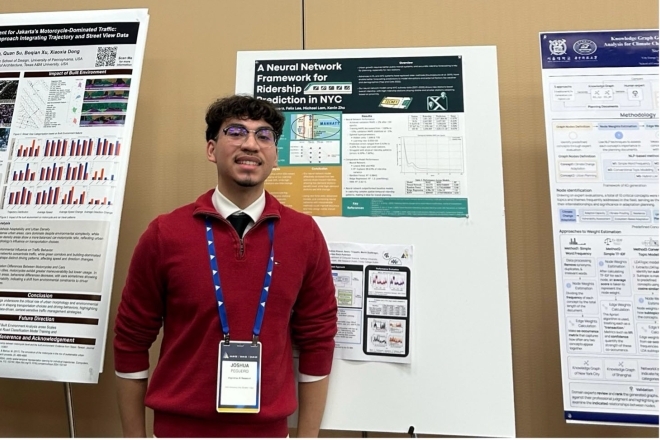
CCPS Student Presents Research at Conference
Joshua Peguero, a first-year Computer Science major in The Lesley H. and William L. Collins College of Professional Studies, recently presented his research at the 39thAnnual Association for the Advancement of Artificial Intelligence Conference on Artificial Intelligence (AAAI-25) in Philadelphia, PA.
Featured Faculty

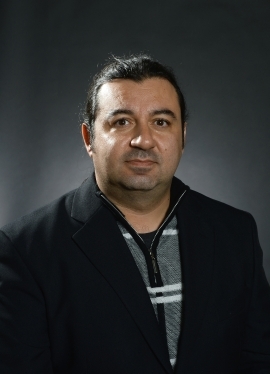
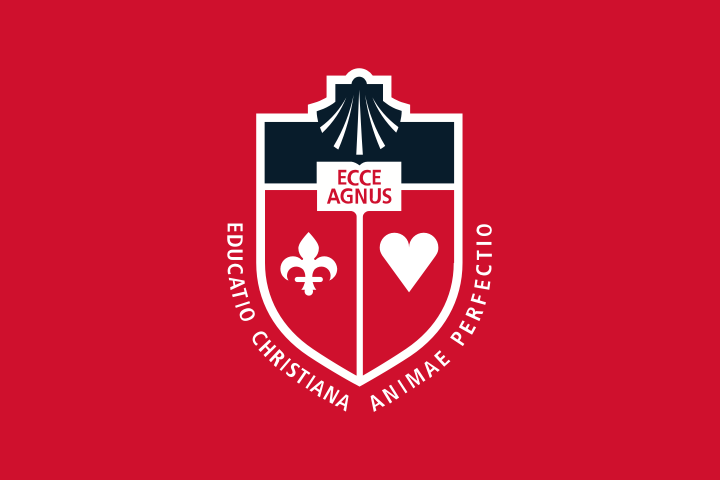

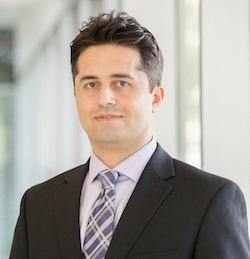

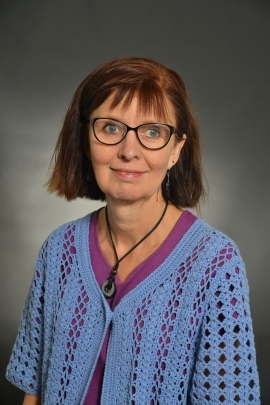

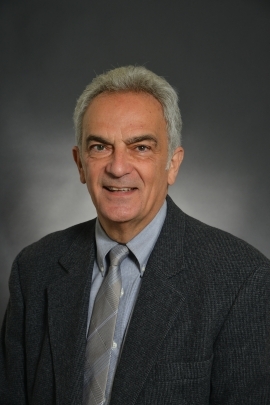
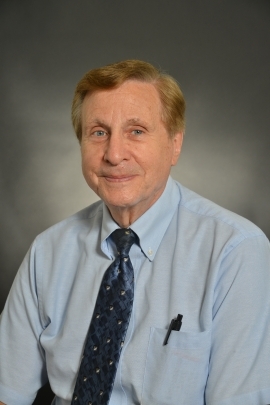
Admission
For more information about admission to this and other undergraduate programs at St. John’s University, please visit Undergraduate Admission or contact us directly at the campus of your choice:
Queens Campus
718-990-2000
[email protected]
Scholarships
Women in the BS/Computer Science program are eligible to apply for the following scholarships.
Click here to learn more about other available scholarships.
AI Opportunities
Break Through Tech AI Program (Cornell University)
Break Through Tech, an initiative of Cornell University, offers a free, virtual, one-year extracurricular AI program for students interested in artificial intelligence, machine learning, and data science. Participants build foundational skills over the summer, work on real industry projects during the academic year, and gain hands-on experience with industry-standard tools—along with mentorship, career coaching, and internship support.
Applications are now open for the 2026–2027 academic year and close on February 16, 2026. Participants earn a Machine Learning certificate from Cornell University and receive a financial award upon completing the program.
Click here to apply.
AI4ALL IGNITE
AI4ALL Ignite is a career accelerator program offered at no cost to students, equipping you with in-demand, hands-on technical skills for AI internships and early career roles. You'll gain industry connections, industry-specific career readiness guidance, a certificate of completion, and a responsible, human-centered approach to AI.
Click here to apply.
Interested in Computing & Technology , but not sure if Computer Science, Bachelor of Science is right for you?
Related Programs
UG
The minor in computer science is an option that provides students an opportunity to supplement or enhance their major program with computer science coursework and additional mathematics courses.
- Queens Campus
GR
The MS in Computer Science program offers specialization in Artificial Intelligence, Data Science, and Cyber Security which focuses on current state-of-the-art technologies and applications, that can help you develop the skills necessary to join an AI-driven economy of the future.
- Queens Campus
UG
For highly-motivated students, St. John’s College of Liberal Arts and Sciences offers a combined Bachelor of Science (B.S.) and Master of Science (M.S.) program in Computer Science and Library and Information Science. The program allows you to complete your undergraduate and graduate degrees in five years of full-time study.
- Queens Campus
UG
The Department of Mathematics and Computer Science is dedicated to the preparation of students for a dynamic future. Our faculty develop curricula that will challenge your curiosity, employ your inventive facilities, and allow you to enjoy the triumph of discovery. We follow Euclid's rigorous approach to mathematics while exploring modern topics like sustainability.
- Queens Campus
GR
With a Master of Science degree in Data Science, you join a promising field where your skills as a data scientist will be sought after to analyze data, develop predictive models, and drive informed decision making.
- Queens Campus
UG
Equipped with cutting-edge technologies, our program empowers students to excel in creating immersive worlds, positioning them as the next generation of visionary game developers and leaders in emerging media.
- Queens Campus
Take the Next Step

Explore Affordability
The Office of Student Financial Services is committed to providing students and their families with the information they need to navigate and understand the financial aid and payment process.
Apply to St. John's
St. John’s offers a free online application for all 100+ undergraduate programs, and graduate applications carry a low cost for most programs.
